The Bahamas: A Perfect Financial Storm Brewing in Tourism Paradise
By Norman Trabulsy Jr.
The Bahamas is entering a period for which I see a Perfect Storm gathering, and this is unfortunate. A Perfect Storm comes about when a number of factors synergize to exacerbate what would otherwise be a mildly disruptive event. Although a number of other supporting realities strongly buttress my view, for the sake of brevity I will base my analysis and prediction of a Perfect Storm on the following.
Implementation of a value-added tax (VAT)
It does not take a Sherlock Holmes to figure out who owes hundreds of millions of dollars to the Bahamian government in uncollected property taxes. Value-added tax is being implemented because the government has failed in its job and been unable, or unwilling, to collect even half of the taxes it is owed. The VAT is a consumer-based and regressive tax, meaning that it hits the poorest the hardest.
The estimated revenue from the VAT assumes that the economy will remain roughly at its current level. I strongly suggest that the Bahamian economy will take a very hard hit for several years due to the high cost of VAT compliance, higher prices, fraud, and the overestimate of the tax revenues to be collected, causing the government to further tighten its belt, all contributing to a dangerous shrinking of the economy. This: before the risk of any hiccup in the tourism sector, which accounts for 80 percent of The Bahamas’ gross domestic product (GDP). It is rather naive to suggest that the tourism sector is immune to rising prices, when survey after survey show that the No. 1 complaint of tourists is high prices. Sun, sea and sand have a value, but there is a limit, and we are pushing it.
Legalization and proliferation of gambling web shops
In The Bahamas, a social epidemic of gambling appears to be a symptom of the larger desperation of being unable to make a decent living and provide for one’s family by holding an average job. But more on that later. I predict that the net effect of a proliferation gambling web shops will be a continued drain on the real economy and an increasing transfer of monies into the hands of web shop owners. The health of an economy is based on the amount of money that freely circulates within it. As more money leaves the real economy via the web shops, the net result is unarguable: a rapid and decisive transfer of wealth into the pockets of those who produce nothing.
A software designer for some of the web shops told me that, for every winner, there are 8,000 losers. Ponder these odds for a moment. I live on a small family island, and I have paid attention to this matter for nearly a decade. I cannot count the times Bahamians who do not gamble have said to me, “These web shops are going to take this country down.” Perhaps they say this because, like me, they have seen the dashed hopes, the unfinished houses, the children whose lunch moneys were squandered by their parents’ spinning, and the money leaving this small island on a weekly basis that could have gone to so many worthy causes and needs. The language should be more honest: gambling is not an industry, it is a Ponzi scheme, and it should be called what it is.
Downgrading of the credit worthiness of The Bahamas by Moody’s
Moody’s recently downgraded the credit worthiness of the Bahamas due to the unlikely probability that it will reduce its 50 percent debt-to-GDP ratio. We are unlikely to do this because for the past 10 years our country has only grown by six percent, and we continue to borrow more money. Moody’s rightfully wonders where the government will find the money to pay off its increasing debt. The prospects are bleak. I liken this situation to the following conversation. A friend comes to me and says, “You owe me $500 today.” I ask, “Why is that?” He answers, “Because 50 years ago your grandfather borrowed $500 from my grandfather and he said you would pay me the $500 your grandfather owed him.” Who doesn’t think this is absurd? Yet, what do the Progressive Liberal Party (PLP) and Free National Movement (FNM) do each year to the citizens of The Bahamas? How is this any less absurd than what our well-educated economists, politicians and lawyers are proposing to us today? When politicians take out these big loans, with interest, who winds up paying for them?
State of the global economy
Not enough honest people have spoken out about the implications of what the major players in the financial sector and government officials have been doing. Since the global financial crisis in 2008, the United States in particular, has pumped trillions of taxpayers dollars into the banks and financial institutions there and around the world, in an attempt to “save” the economy that was put in danger by, you guessed it, the banks and financial institutions. Soon the consequences of this policy will become yet more apparent in rising inflation, increasing inequality, and a greater impoverishment for most of humanity. Any prudent government would have, after assessing the crisis and its causes, broken up the largest of banks and nationalized those that had done the most harm to society.
The largest banks, financial institutions, and here in The Bahamas even the web shops, have completely captured our politicians and the political process. Consider the phrases: Too Big To Fail and Too Big to Jail. Justice has become lopsided and no longer applies to the rich and powerful. This is the reality today throughout the world, and it is contrary to any concept of democracy. The people of The Bahamas said “No” on the referendum regarding web shops. Yet, what did our Prime Minister do? Who do the politicians really work for? Does democracy exist in The Bahamas, or anywhere? Answer honestly. Now, what are you going to do about it?
Increasing poverty rate in The Bahamas
The realities about poverty in The Bahamas are probably worse than the government statistics suggest. For an indicator of the real state of our economy and the hurdles that must be overcome to change our course, speak to any social service worker. They will tell you that they are seeing an increasingly depressed, despondent and hopeless people who come for assistance. Yet the government is cutting back on social services to balance the budget, so that there will be even less resources to help the rising numbers of people who need them. The economic considerations are in themselves sufficient cause for concern, but it is also reasonable to expect that, as the poverty rate increases, the crime rate will increase, and public safety, the quality of life and tourism will decline.
Increasing emphasis on the “financial services industry”
The so-called financial services industry is the second largest contributor to the GDP of The Bahamas, after tourism. It is not an industry but a scheme to attract people who don’t want to pay taxes in their own countries and need a place to hide their money. The Bahamas levies no income tax, no corporate tax, no inheritance tax, no capital gains tax, and it seems that property taxes are very low and not collectable. The money to run the government comes, for the most part, from the working people of The Bahamas. The rich pay a minuscule percentage of their incomes to live in paradise: sort of like going to Disney World for free.
If the tax policies here in The Bahamas actually created an incentive for investment, an improvement in the job market, and a healthy economy, wouldn’t there be better results after all these decades of such policies? Instead, our politicians, lawyers, bankers, the financial services representatives, all of them, have become beholden to big money. Who, in their right mind, can possibly say that things here and around the world are going well and that the future looks bright for most of the world’s people? The “financial services industry” produces little to improve the lives of ordinary people. There is no reason to give the rich a free ride in this country; the benefits of living here are too great to be given away for free. I say: make them pay their fair share. The Bahamian people need to stand up and call for these changes, because not one person in the government has the guts to tell it like it is.
Aspiration to join free-trade organizations
Generally speaking, free trade in today’s world is a way for transnational companies to subvert a county’s legal system and destroy its sovereignty. The result of almost every modern free-trade agreement has been the destruction of a country’s agricultural and manufacturing base and its replacement by highly subsidized foreign corporate ownership, gutting of environmental laws and crushing of organized labor. Any complaints and lawsuits must now be handled by an extra-judicial group of corporate lawyers with loyalties to big business. This idea of The Bahamas joining these free-trade agreements will only further the interests of those businessmen, lawyers and politicians who are pushing them. They will not help the tourist economy or manufacturing economy of The Bahamas or create more and better jobs for Bahamians. These issues must be known to the Bahamian people before our politicians sell this country out from under our feet.
Lack of leadership
Anyone old enough to remember, or who has gone to YouTube to hear, the words of Martin Luther King Jr. understands that we have no statesmen in this world today. Do not be duped by the words of the first African-American US President. He is not even worthy to stand in the shadows of MLK Jr. Listen to the words of our own politicians in The Bahamas: mere words, poisonous words, for they are meant to trick us into believing that they have our interests in mind. Nowhere in the world is there a leader with the integrity, honesty, courage and fortitude required to govern. Each and every one is beholden to the moneyed interests in the world today. I have heard the expression, “We get the government we deserve.” If this is true, I am saddened by where we are as a people. If we can rise up, and create a better society, it is time to do so. Let us get rid of the charlatans, the spineless, the greedy, the dishonest and egotistical excuses for public servants that we now have. This isn’t about one political party or another. Wake up people! I believe we are staring a Perfect Storm in the face. It is up to us to do something for ourselves to avoid the impending crisis.
Editor’s Notes: Norman Trabulsy Jr. is an expecting father, restauranteur, sailor, captain, carpenter and naturalist living in The Bahamas. His writing generally focuses on environmental issues concerning tropical marine ecosystems and economics.
Photographs one, four and nine by Thomas Hawk; two, five and fourteen by Albyan Toniazzi; three and ten by Susan; seven and thirteen by Bruce Tuten; eleven and twelve by Shutter Runner; six by Jordon Cooper, and eight from the IMF archives.
Related Articles

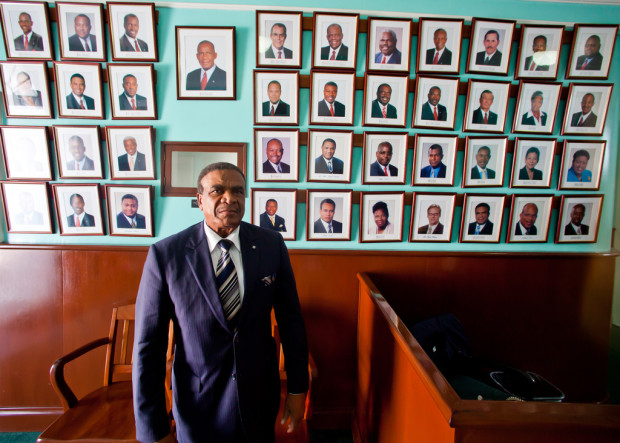
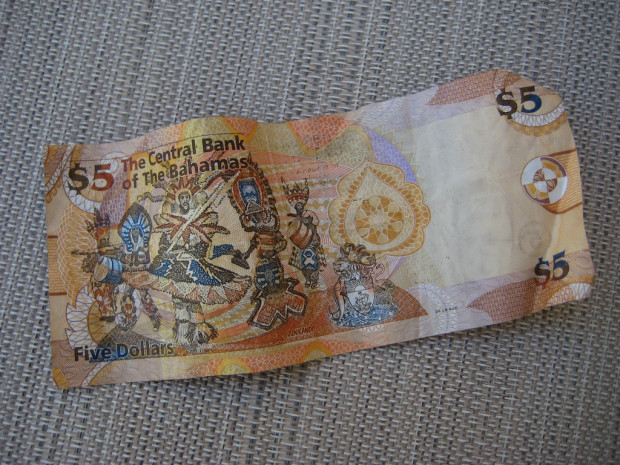
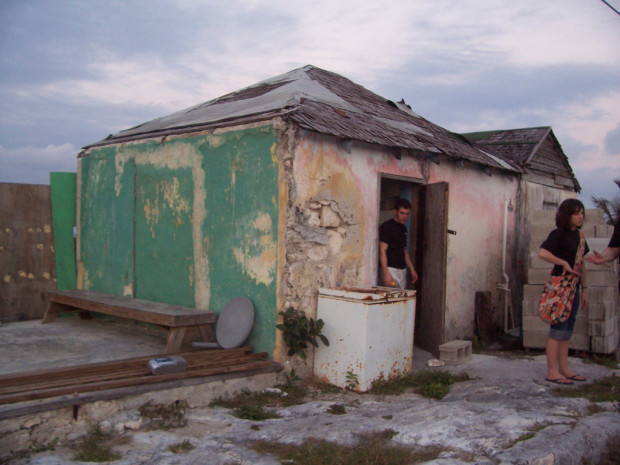

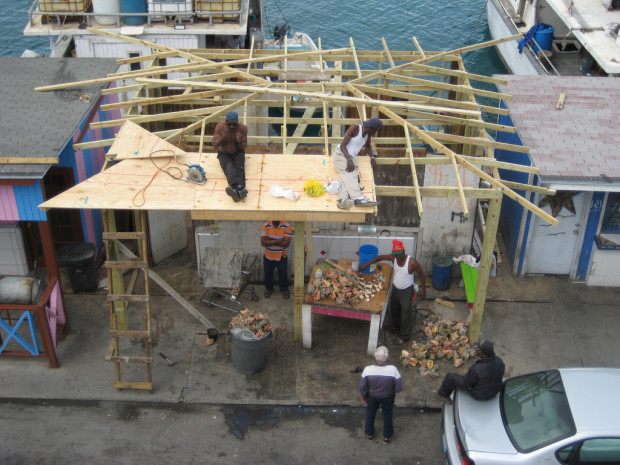
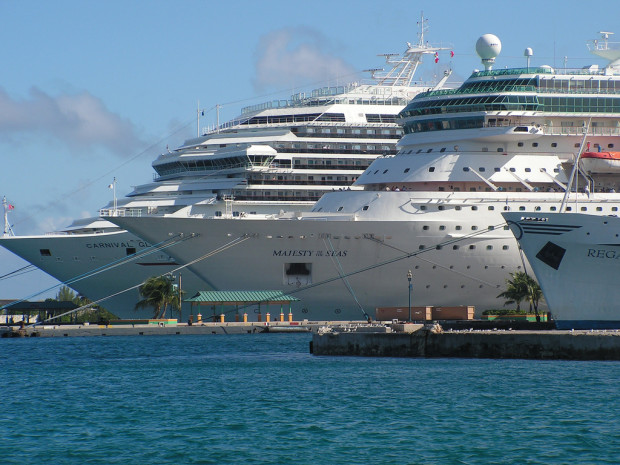
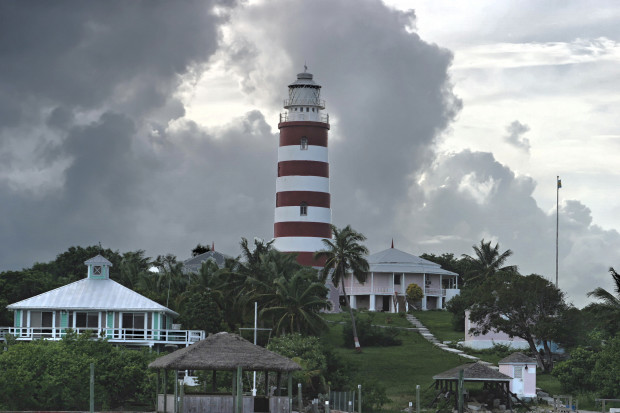
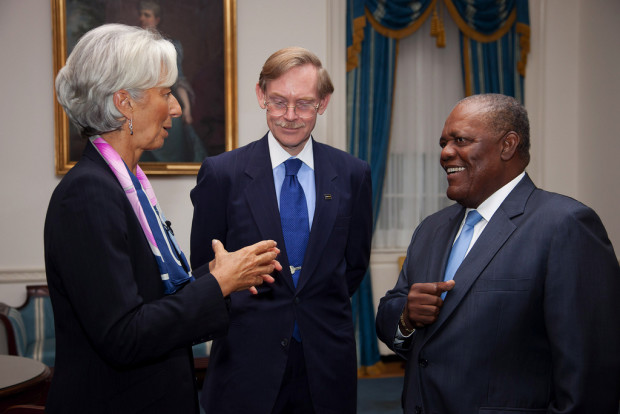


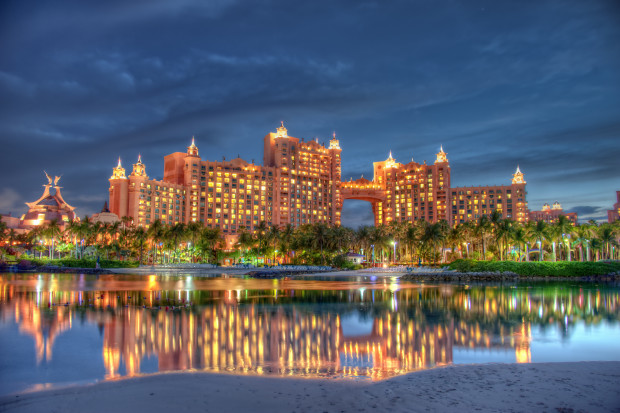
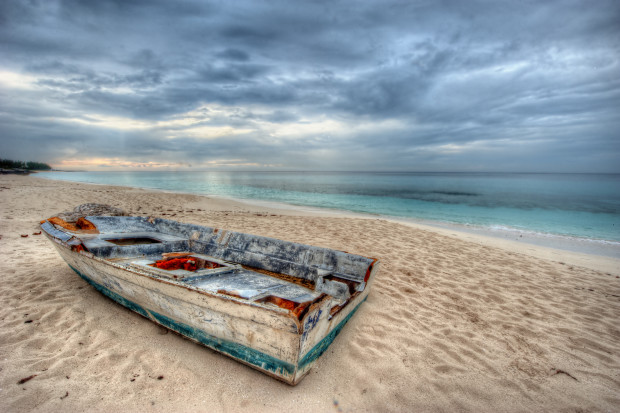

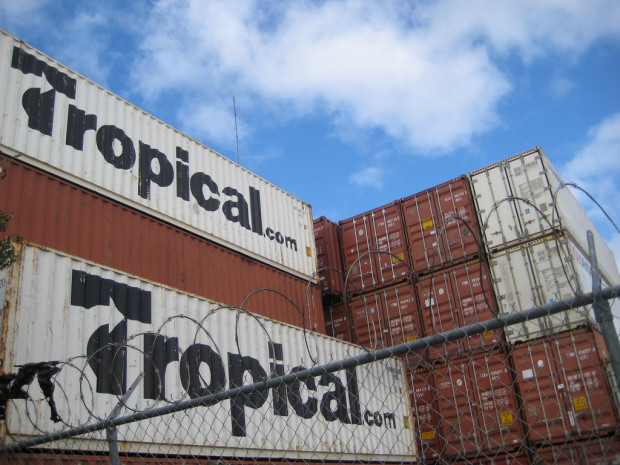











35 Responses to The Bahamas: A Perfect Financial Storm Brewing in Tourism Paradise
You must be logged in to post a comment Login